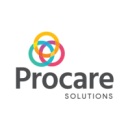Women are making marks on the tech landscape. Yet, their journeys remain underscored by challenge and resilience.
Despite the industry’s strides in diversity and inclusion, representation of women in technology remains lacking, a symptom of deeper societal and structural issues.
Research has highlighted how societal perceptions and stereotypes significantly influence women university students regarding careers in technology, contributing to their underrepresentation in the sector.
The academic study published in the Journal of the National Institute for Career Education and Counseling underscores the persistent hurdles stemming from cultural and educational environments. These challenges are not isolated but are part of a continuum that affects women’s participation and advancement in tech.
While the presence of women in the industry has increased, reflecting a slow but positive shift toward inclusivity, the path to equity in opportunity, representation and pay is ongoing.
Likewise, sustained advocacy, structural changes and cultural shifts are essential to ensure a tech environment that realizes everyone’s potential — especially in the wake of recent layoffs that have disproportionately impacted women in the industry.
The experiences and insights of women who have forged paths in this field become invaluable sources of insight for those looking to follow in their footsteps.
Women in leadership at four Colorado companies reflected on their career growth, the resources that have supported their advancement and the wisdom they’ve garnered along the way.
Procare Solutions has offered child care management software for over 30 years, streamlining administrative tasks for early childhood educators.
Tell me how you’ve grown during your time in the tech industry. Where did you start, and where are you now?
My multi-faceted career spanning web design, user experience and digital marketing campaigns equips me to lead UI/UX teams and champion end-to-end customer journeys. I started as a web designer and developer at a digital agency. While working in the marketing department of a software company, I recognized the growing importance of UX. So, I transitioned to software design.
Today, I lead Procare Solutions’ UI/UX team in crafting intuitive and engaging experiences across all touchpoints, from discovery to ongoing product use. My passion lies in designing technical solutions that help improve everyone’s lives.
What resources are available at your company or within your community to help women grow their skills and learn from others?
My career has been enriched by the guidance and support of extraordinary women, most from different fields yet facing similar challenges. Their unwavering advocacy and resilience in male-dominated spaces taught me how to navigate those obstacles confidently and gracefully. Witnessing their diverse perspectives and approaches to problem-solving broadened my creativity. It led to impactful projects like one of the first online design applications, digital assistant solutions for surgery, and advanced vacation booking engines. This experience solidified my belief in the power of diversity, not just for inclusivity but for driving innovation and excellence. I’m committed to paying it forward and actively championing mentorship and support networks for women, especially in technology.
You must continuously remind yourself that your perspective and skills are valuable and you are there for a reason.”
What advice would you give to other women interested in leveling up their careers? What are some of the biggest lessons you’ve learned?
Be bold in showcasing your expertise and knowledge, even if you feel like you’re in a room with more senior or experienced individuals. I was often the only woman or one with my skill set in the room. And it’s easy to sit back and allow others to contribute. But that is different from how progress is made. You must continuously remind yourself that your perspective and skills are valuable and you are there for a reason.
Quantum Metric’s digital intelligence platform provides cross-functional teams with real-time insights that help identify technical issues, monitor performance and create customer-centric digital products.
Tell me how you’ve grown during your time in the tech industry. Where did you start, and where are you now?
I started in tech as an office manager in a regional sales office of Level 3 Communications, now Lumen. I was fresh out of college and didn’t know what or who I wanted to be, and this role gave me visibility into sales, engineering and customer success. I discovered that I love the rush of sales and landing new customers but was more attracted to building environments that make people feel comfortable enough to let their guard down and have sales conversations. This led me to the world of event marketing. I transitioned into a regional field marketing role at ViaWest, now Flexential, where I grew into people management and led the North American field marketing team.
In 2018, I took a leap of faith and left that stable job to join Quantum Metric, a 50-person startup that was on the cusp of announcing its Series A round as a founding marketing leader. My mission was to build the field program from scratch and generate demand. Along the way, we built a raving customer community, secured our “Unicorn” round in 2021, and ended 2023 with reaching $100 million in revenue. Today, I lead our global experience marketing team.
What resources are available at your company or within your community to help women grow their skills and learn from others?
I have been fortunate to have several women mentors in my career, chief among them my first manager in tech marketing, Kayla Kirkeby, and my current CMO at Quantum Metric, Efrat Ravid. These are leaders who champion the advancement of women in the workplace with every fiber of their being. I am on the leadership team for the Women’s ERG at my company, and our programming includes mentorship programs, leadership training programs and career development events tackling issues that are common obstacles for women, such as battling imposter syndrome and getting comfortable with self-advocacy.
I’ve also invested in an executive coach for the past two years, which has really leveled up my leadership and communication skills. As VP of experience marketing, I have the privilege to feature stories from women in our client base on stage at events like our annual conference Quantum LEAP and in our user group events.
What advice would you give other women interested in leveling up their careers? What are some of the biggest lessons you’ve learned?
To level up within your existing organization, start doing pieces of the role you want while you hold your current role. Show your manager that you have the capacity for growth.
Opportunities are everywhere if you keep yourself open to them. Don’t let your focus get too narrow on what your “dream” opportunity looks like and miss out on something worth exploring.
Don’t let your focus get too narrow on what your “dream” opportunity looks like and miss out on something worth exploring.”
Approach the interview process like you are the primary evaluator. We often feel so exposed and vulnerable that we mold ourselves to be “right” for the company while missing the opportunity to decide whether the opportunity is right for you. Does this company have a track record of internal promotions? Has the hiring manager championed people into up-leveled roles?
Social media is your resume. Create and curate content related to the role you want to show your passion and expertise, even if you’ve never held the exact role before.
Hire a coach. Most of us aren’t receiving true coaching from our managers, and we’re suffering from a lack of actionable feedback.
If you fear rejection, you’re probably standing in your own way. Getting told “no” gets easier with practice, so start practicing.
SambaSafety is a leading SaaS company in mobility and driver risk intelligence, pioneering cloud-based solutions that empower businesses with an advanced intuitive risk management platform.
Tell me how you’ve grown during your time in the tech industry. Where did you start, and where are you now?
I did not have a linear path into tech, which I think is true for many. I came into product with a background in the humanities, skeptical of my ability to succeed in tech without any technical background. I quickly learned that wasn’t the question. My role is not to be the most technically proficient in the room but to listen, ask good questions, act as the “glue” between stakeholders and be an advocate for my product. This approach enables me to be in a position to understand SaaS, regardless of industry. Thanks to the patient and highly intelligent teams I work with, I stay open and curious and learn something new daily. The seeming discrepancy between my background and chosen career keeps me motivated and engaged daily.
What resources are available at your company or within your community to help women grow their skills and learn from others?
SambaSafety has a culture of curiosity and willingness to learn and improve, which is embedded not just in how we build our products but also in how we approach conversations with one another. SambaSafety hosts a book club, including titles like “Invisible Women: Exposing Data Bias in a World Made for Men.” There is active engagement from the C-suite and across departments, making it not just a DEI Initiative to post on the website but a key to the company’s recognition of its responsibility to women and non-dominant groups.
As a tech company serving equally historically male-dominant industries like trucking and insurance, SambaSafety actively strives to evolve and learn, which is what we need to ask of our companies.
Be open about what you feel about your team.”
What advice would you give to other women interested in leveling up their careers? What are some of the biggest lessons you’ve learned?
I would pass on the advice I received from another woman working at Samba: be open about what you feel about your team. I used to be afraid that revealing a frustration or failure would be unprofessional or cause my coworkers unnecessary anxiety. Now, I feel empowered by sharing my own experiences, good or bad, with my team as appropriate. I find they do the same in turn, leading to a shared understanding and co-created space. It has made me feel I can fail safely and share our successes more widely.
As a mobile and digital identity authentication leader, Prove helps companies create effortless customer experiences by instantly authenticating new user accounts.
Tell me how you’ve grown during your time in the tech industry. Where did you start, and where are you now?
I started my career in management consulting. I believe that working in consulting and strategy helped me develop a problem-solving toolkit early on in my career. This meant that as the challenges became harder, I had the ability — and confidence — to build hypotheses and continuously improve. Consulting also gave me an understanding of how important your network is, particularly adding value to that network.
To this day, when I have a challenge or a problem, I have multiple people on both sides of the Atlantic I can call to ask for guidance and support; that is an invaluable tool. I moved from consulting to technology in financial services and, simply put, I found my passion. For the last 15 years, I have been focused on removing barriers from the movement of money so individuals and businesses can thrive. This passion has led me to multiple product and strategy roles across technology, SaaS and financial services.
What resources are available at your company or within your community to help women grow their skills and learn from others?
Prove has a very flat organizational structure where we have the culture necessary to create an open-door environment. Empowering employees to ask for what they need is critical for the success of a business. I personally mentor two women informally at Prove.
The product team will also launch its brand new book club this year; the objective is to provide an environment for product professionals to exchange good sources of continuous improvement.
I am also an active participant in FinTech Atlanta and try to make a point to attend their events as much as possible. Supporting my local network and helping new local fintechs succeed are things I personally enjoy.
What advice would you give to other women interested in leveling up their careers? What are some of the biggest lessons you’ve learned?
I have received great advice throughout my career. I will share two insights. One is tactical and easy to implement, and the other is more subtle.
Firstly, learn to write: Crafting a presentation for an ExCo audience or a non-executive board is hard. The ability to tell a story enables a team leader to become a department head. If you cannot communicate upward and downward on paper, you will not be able to scale your scope. Find the best presentation you have seen and get the author of that paper to guide your development in storytelling. About five years ago, I had an informal mentoring relationship with the chief strategy officer at Sage. I used to send him all my product strategy papers, and he would return them covered in changes. It was humbling and challenging, but I believe he significantly contributed to my success.
If you cannot communicate upward and downward on paper, you will not be able to scale your scope.”
Secondly, create a SWOT for your job and career: Invest in continuously looking at strengths, weaknesses, opportunities and threats. Being intentional about your success across all levels — project, role, career — is critical to achieving your goals. How do you know you are growing if you have no objectives to measure success?













